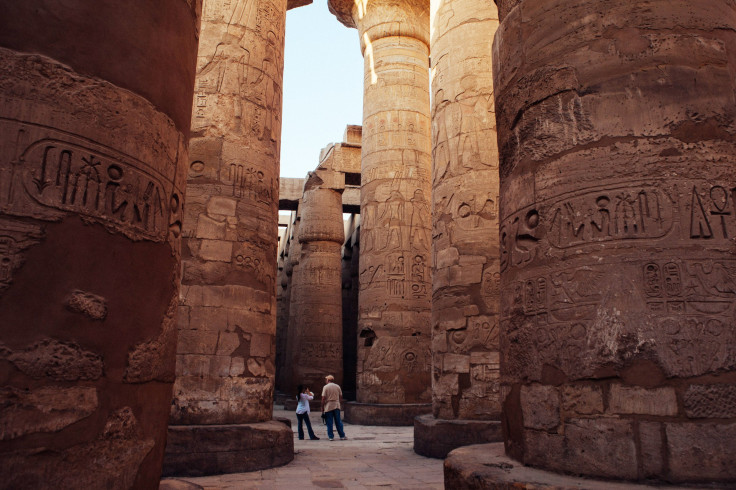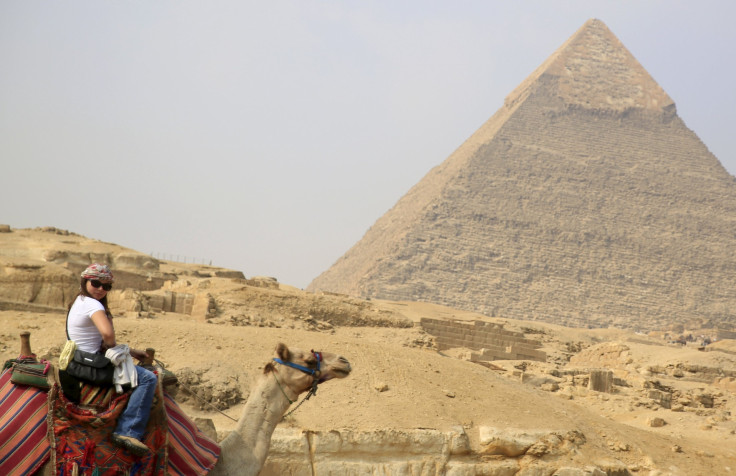EgyptAir Crash Another In A Long Line Of Blows For Egypt’s Tourism-Dependent Economy

Pity the Egyptian economy, dependent as it is on tourism: No sooner did the United Nations declare Luxor, with its breathtaking outdoor ruins on the Nile, the world tourism capital of 2016, than an EgyptAir flight from Paris to Cairo went down in the Mediterranean Sea. Besides the tragedy of 66 lives lost, another loss will surely be desperately needed tourism revenue for the oft-battered economy.
Though authorities have yet to determine a cause, the crash is the latest in an unrelenting series of blows to the economy of the largest Arab nation. Its recent economic history is one of repeated failures to rise, with each potential opening for a rebound beaten back by unforeseen crises, from the Arab Spring uprising in 2011 to this week’s tragedy of EgyptAir Flight 804.
“It’s going to hurt Egyptian tourism one way or another,” said Michele Dunne, director of the Middle East Program at the Carnegie Endowment for International Peace. Stocks in tourism-related companies fell Thursday, and “is EgyptAir safe?” became a top-searched Google term.

“However the investigation turns out, just the name EgyptAir being identified with this crash immediately brings up other disasters,” Dunne said. The most pertinent recent catastrophe to come to mind is MetroJet Flight 9268, the Russian airliner brought down by terrorists last October, leading to a virtual halt in the previously robust stream of visitors from Russia.
“That really gutted the tourism industry, which has never yet recovered to its pre-2011 levels,” Dunne said.
The number of tourists visiting Egypt dropped more than 40 percent in the months after the MetroJet attack, weighing further on visitor counts that already had tumbled following the overthrow of Hosni Mubarak in 2011 and the subsequent military coup in 2013 that installed Gen. Abdel-Fattah el-Sisi as ruler.
The Egyptian military hasn’t helped the situation. Security forces last September inadvertently bombed a group of Mexican tourists in the desert, killing 12 and further dampening foreign appetite to visit Egypt’s pyramids and beachfronts.
It’s more than just resorts and airports that feel the pain when tourism drops. Accounting for around 11 percent of gross domestic product, the tourism industry serves a crucial role in Egypt’s entire economy, providing rich demand for goods, food and transport.
The recent setbacks have been all the more painful given improvements in Egyptian living standards in the 1990s that continued into the 2000s. The gains were fueled by an opening of markets to the global financial system and a relaxation of protectionist controls on national industries.
In the 1990s Egypt emerged from a stifling debt crisis and began to reform its economy. In its slow transformation into a global tourist destination, the GDP rose in fits and starts from an average 3.5 percent in the early 1990s to more than 7 percent in the years leading up the global financial crisis in 2008.
But the rapid pace of growth in the 2000s masked an underlying economic malaise, most notably in the persistently high poverty rates that helped kindle the revolutionary spirit that arose following the aftershocks of the financial crisis. An official poverty rate of 16.7 percent in 1999 rose to 21.6 percent in 2008, despite economic vitality. Today, with the unemployment rate stuck stubbornly in the double digits, 26 percent of the Egyptian population lives below the poverty line.
“Egypt even did pretty well through the global financial crisis, but those benefits were never broadly distributed,” Dunne said. “This is what the uprisings were all about.”
Even if tourism comes back, the current regime will be tasked with reviving a damaged economy. The task has proved difficult for the military government so far. Projects like a massive expansion of the Suez canal — undertaken despite depressed demand in the area — have sown doubts among global investors.
Meanwhile, as Egypt has shifted through three ruling regimes in five years, a poor education system and a pervasive lack of social mobility have come to define the country. Egypt scores in the bottom third internationally in the World Economic Forum’s annual measure of human capital development.
“Egypt has never had a strategy for that,” Dunne said. “Their huge population — 90 million people — should become an engine for economic growth, not a danger to stability.”
© Copyright IBTimes 2024. All rights reserved.






















